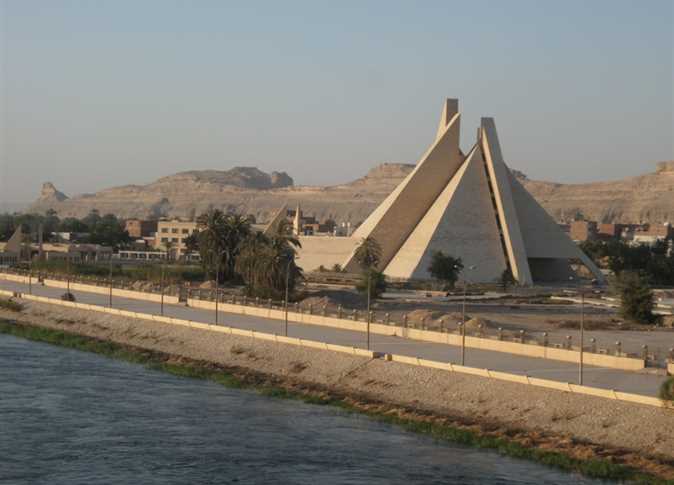The Muslim Brotherhood did not do anything odd when their Supreme Guidance Bureau decided to mobilize members and send them to the streets to stage a protest on October 12 to call for purging the judiciary of corruption and sacking the public prosecutor. It is quite common for those in power to decide to resort to street protests to boast their popularity, alongside their use of official channels to disseminate their views.
People in power have their obsessions, the most important of which is show of power, but the obsession with popularity is no less important. Those in power like to see themselves as immensely popular among the people, the same way they love to see fear in the eyes of the people.
The Brotherhood has a story worth telling because it solves much of the mystery of the Egyptian revolution, which oscillates between victory and defeat like a swinging pendulum panting for breath.
The average man mind-set
The literature is abundant with descriptions of the Brotherhood as reformist, conservative, reactionary and opportunistic. But this is not the key to understanding them. To understand them, we need to look deeper and to search for the genuine motives that led to the formation of the group as it is now.
The Brotherhood is an organization that took shape in the span of 80 years, if you consider the group established by Hassan al-Banna and a little less than forty years if you consider the second stage in the life of the group when the 1970s Islamists, such as Abdel Moneim Abouel Fotouh and Essam al-Erian, met with the remnants of the first generation such as Omar al-Telmesany and Mostafa Mashhour.
Over those 80 or 40 years, the Brotherhood have loyally ascribed to the mentality and psyche of the average man, or that effendi that belongs to a small city or popular district of a large city with roots in some village in the Nile Delta. Dazed, this modernization-struck effendi embarked on a search for some conservative fulcrum to protect him from integrating into a hostile, corrupt world.
That average man growls about the big modern city, but handles his anger very cautiously.
The Brotherhood changed considerably at the second point of their establishment and then again at the beginning of the second decade of the third millennium. But reflecting on their history reveals that they have kept that “average man” mentality — the mentality of subservient reformism.
A shock and an opportunity
The Egyptian revolution was both a shock and an opportunity for the Brotherhood. A revolution shocks the average man because it threatens his most valuable asset: his ability to maneuver till the end and his insistence on not taking a conclusive position vis-a-vis those in positions of power. But the revolution also proved to be an opportunity for the group, for perhaps it was time for the Brotherhood to change the rules of the game after 80 years of hit-and-run tactics.
It is quite evident that the Brotherhood has stuck to the mind-set of the average man after the ouster of former President Hosni Mubarak on 11 February 2011. It was never on their agenda to continue the revolution. They were preoccupied only by how to sneak into power in order to get a slice of the cake. A Brotherhood member never accepts to be in power, but only to accompany those in power.
The protest the Brotherhood staged on October 12 was therefore not a fabricated one. It was only a manifestation of that average man’s mentality who cannot believe that he is, in fact, in power.
The Couch Party
The Brotherhood's reformism in part explains the tragedy of the revolution. It can be said that the Brotherhood are the legitimate political representative of the couch party — those who briefly joined the revolution in its first two weeks and have for the past two years criticized its radicalism in the name of sensibility and moderation without outright declaring their hostility towards it.
“We support the revolution but the revolution has ended and now is the time for building the country,” they would say, giving an accusatory look to those crazy people who want the “street to rule” and the revolution to continue.
The Brotherhood's sensibility leads them to make compromises. For instance, the Brotherhood would remove a certain Mubarak-era figure at the helm of a certain institution only to have him replaced with his loyal deputy, or achieve a certain demand for the revolution and then go back on it.
A void
The Brotherhood may succeed in reforming the state such that it accepts them as its loyal servant or they may alternatively fail, giving way to another more coherent alternative to rise. But this is not the chief problem we face now.
What we should be more concerned with is a possible void. In Egypt today, authoritarianism fights authoritarianism, with one power trying to cling to whatever it has and the other, the miserable Brotherhood, trying to reproduce the sweet logos of “Egyptian identity,” and “national security.”
The Brotherhood's strategy of rule is congruent with that of the old regime in its failure to deal with deep-rooted economic and social problems, but it is attempting to give a new packaging to the same defective products.
The revolution's creative dismantling of the old regime will lose effect if it does not take on a form of political representation.
Dismantling the established system is only the first step. The second concern should be to seek power — otherwise the Brotherhood will continue to subdue the revolution.
Translated from Al-Masry Al-Youm by Dina Zafer.




